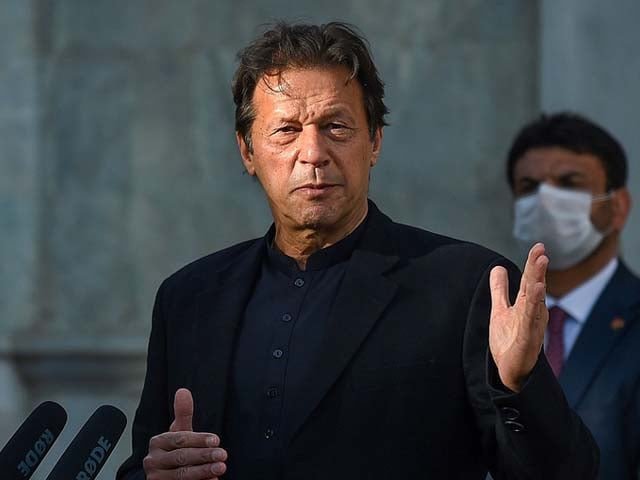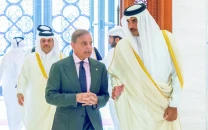Highs and lows in a turbulent diplomatic year
Despite an ever present threat from India, Pakistan managed to finally broker a deal between the US and Taliban

When Prime Minister Imran Khan recently met army chief General Qamar Javed Bajwa and DG ISI Lt General Faiz Hameed, one of the agenda items on the table was to discuss the possible Indian threat of a ‘false flag operation’ and ‘surgical strike.’
Pakistan has gone on record to say that it has credible intelligence India may carry out any ‘misadventure’ to divert attention from the multiple domestic problems facing the Modi government.

As per Pakistan's assessment, Modi government wanted to use the window available before Joe Biden takes charge on January 20 to carry out such a strike. The reason the Modi government is desperate to resort to such a tactic is because it has already sensed that under the Biden administration, it may not have the free license. If India carries out any such misadventure, Pakistan’s response will be ‘robust and all out,’ according to sources.
The deteriorating ties between Pakistan and India only highlight how tough 2020 had been for the country in terms of foreign policy. And Pakistan’s foreign policy challenges were compounded not just by India but other regional changes.
The only bright spot in 2020 was no doubt the progress so far made in the Afghan peace process. The signing of the deal between the United States and Afghan Taliban on February 29 in Doha was indeed a landmark development, raising hopes of possible political solution to the 19-year old war. That landmark deal would not have been possible had Pakistan not played a proactive role. Pakistan not only facilitated the US-Taliban deal but was also instrumental in brokering the intra-Afghan talks, a crucial step in peace making efforts. Only recently Pakistan publically and officially took credit for these developments. The positive strides in the Afghan peace process naturally helped Pakistan improve ties with the US. There has been visible change in Washington towards Pakistan. Unlike the past, there were no negative statements emanating from the US.
But the improvement in ties has only remained confined to mere lowering of rhetoric. In terms of substantive issues, there has been no progress. For example, the US has not helped Pakistan on the Financial Action Task Force (FATF) nor the Trump administration took any clear stance on Kashmir after India revoked its special status.
The view in the US establishment about Pakistan remains the same. This has been reflected in their annual reports on the terrorism and religious freedom. Both these reports were critical of Pakistan.
As a consequence of progress in Afghan peace efforts, the relationship between Pakistan and Afghanistan has also shown improvement. There have been efforts particularly from Islamabad to improve ties with Kabul. The visit of Dr Abdullah Abdullah, the head of Afghan high peace council, after a gap of long 12 years and Prime Minister Imran’s maiden visit to Kabul suggested that the two sides were keen to sort out their differences through diplomatic channels. Nevertheless, the trust deficit still persists between the two countries as the Kabul administration is still wary of Pakistan’s role in the peace efforts.
A major highlight of 2020 in terms of foreign policy was no doubt Pakistan’s relationship with the Gulf countries, particularly Saudi Arabia and the United Arab Emirates (UAE). Although, officially both sides would not say, recent developments suggest that Pakistan’s ties with Saudi Arabia and UAE are facing certain challenges. And this has to do with new alliances, particularly Arab countries’ change in policy towards Israel.
That has naturally made Pakistan’s relationship with key Arab countries complicated. It was because of these developments that Pakistan had to return $2 billion loan to Saudi Arabia ahead of time. This was unprecedented given the fact that in the past Saudi Arabia often converted such loans into grants and never asked Pakistan to repay.
There has been, nevertheless, effort on both sides to sort out differences. Observers believe that the nature of relationship between Pakistan and certain Arab countries may not remain the same given the challenges and changes in the world but the ties are too important for both sides to unravel.
When Pakistan had to return Saudi loan, it was China that came to Pakistan’s rescue, once again highlighting the close ties between the two countries. China continues to offer crucial support to Pakistan not just on the economic front but also on the diplomatic side. It was China’s efforts that brought the issue of Kashmir to the UNSC, albeit informally. Similarly, China’s support remained steadfast at the FATF and other multilateral forums.
The PTI in its manifesto laid a greater focus on economic diplomacy. In fact Foreign Minister Shah Mehmood Qureshi, in his first conference, stated clearly that the focus of this government would be on economic diplomacy. Prime Minister’s special assistant on national security Dr Moeed Yousaf has been tasked with promoting economic diplomacy. But practically there has been on major or visible initiative taken by this government on that front in 2020.



















COMMENTS
Comments are moderated and generally will be posted if they are on-topic and not abusive.
For more information, please see our Comments FAQ